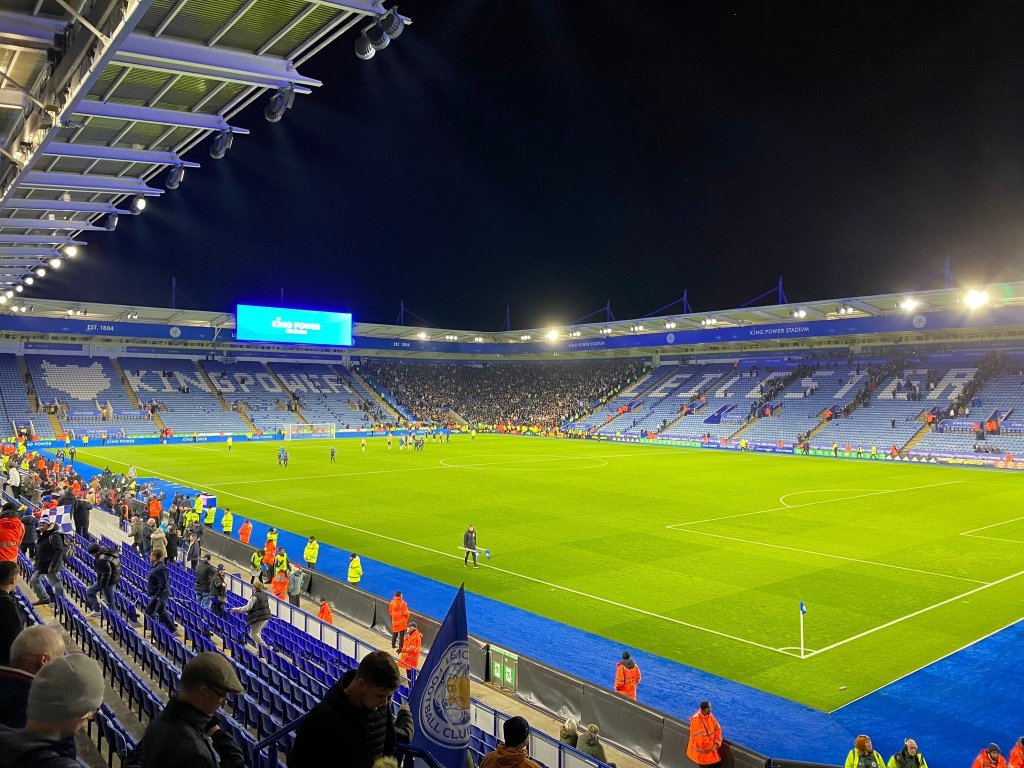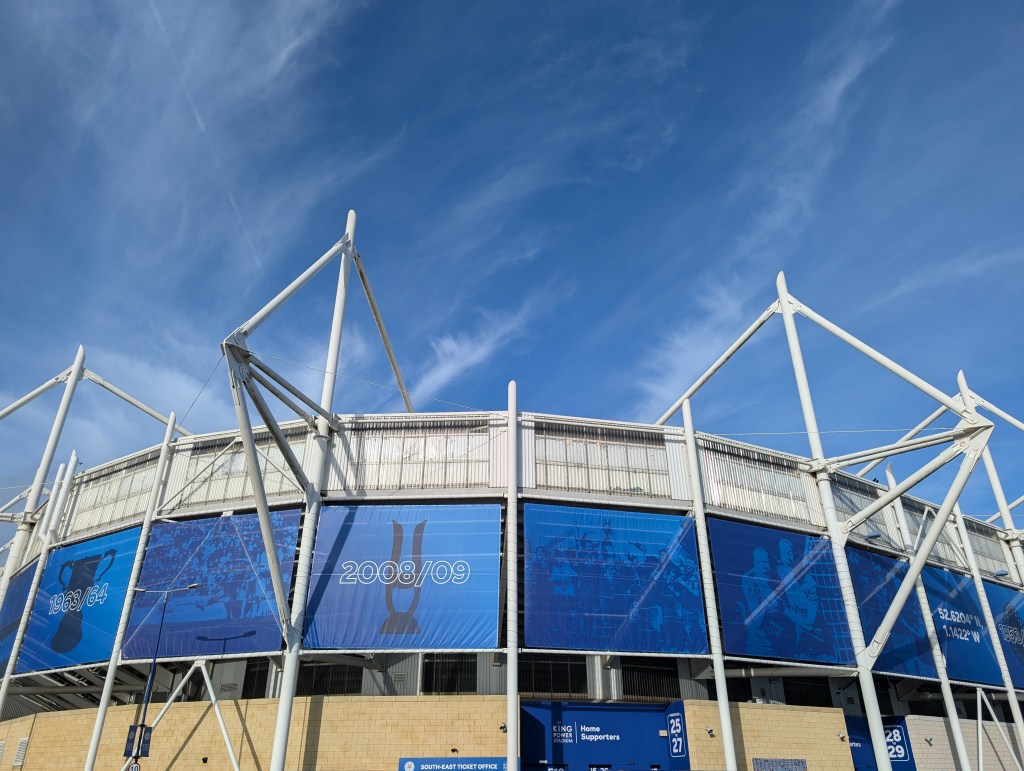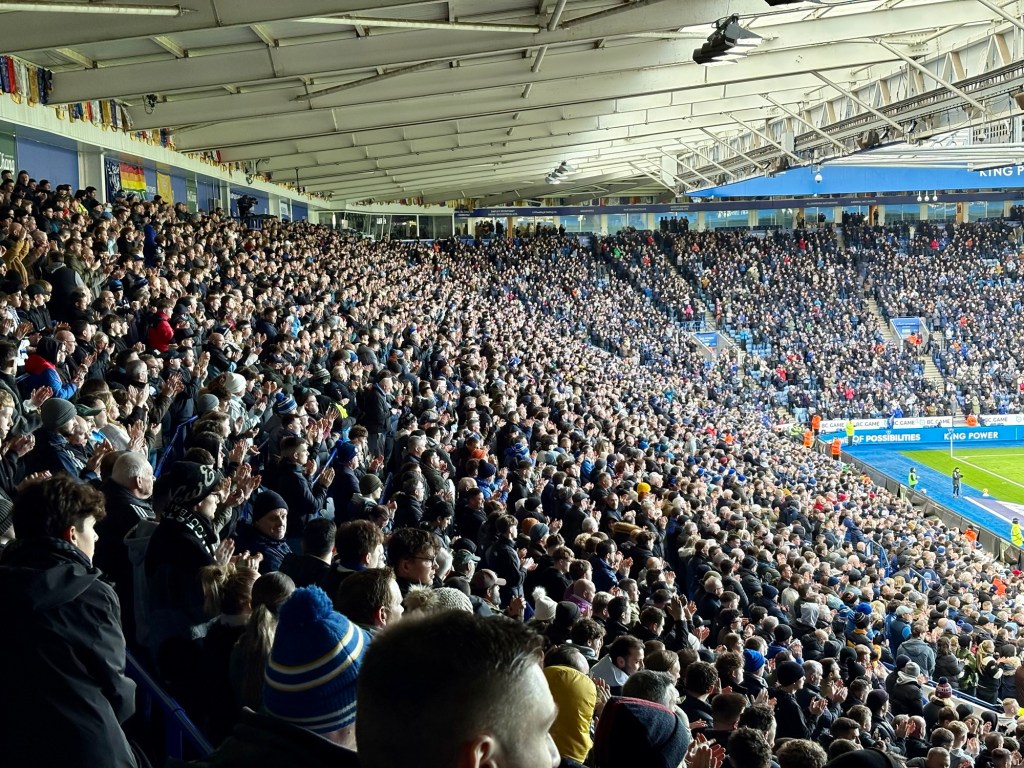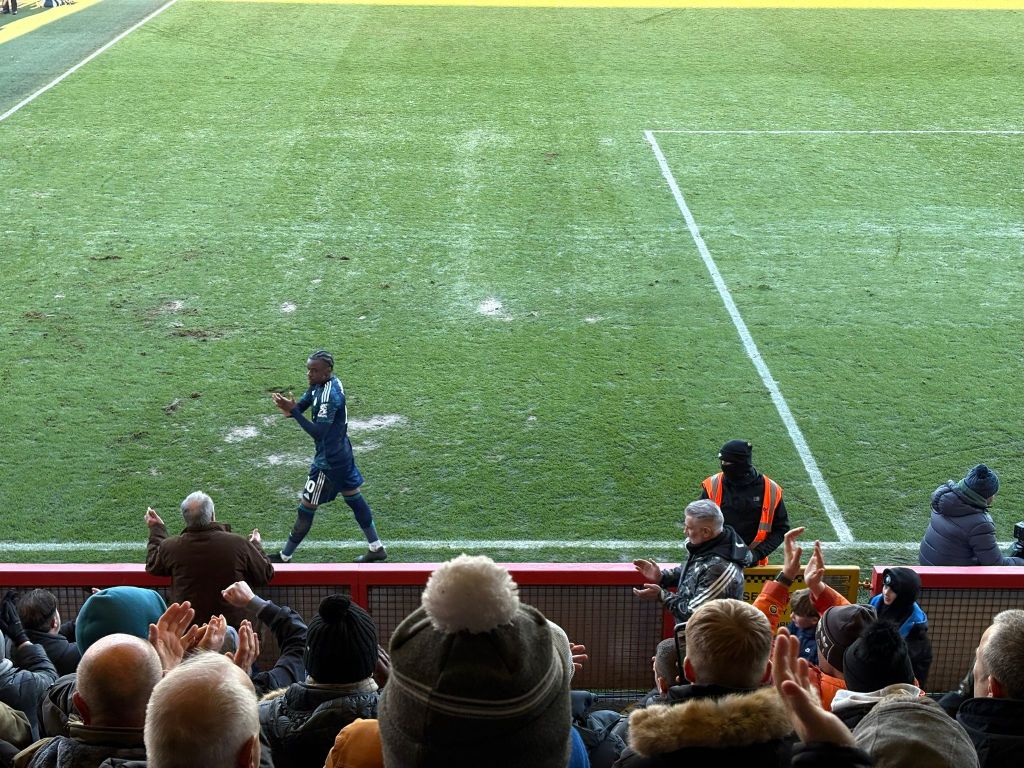The fallout from Leicester City’s relegation has so far largely concerned two periods of time: the nine years of top flight status that has come to an end and this past season that has ended it.
There’s a third period to consider though. Jon Rudkin, Brendan Rodgers and certain players have understandably borne the brunt of criticism from fans, but it’s still important to assess the job done by Dean Smith over the final eight games of the season.
Not least because it’ll be in demand either when fans of Smith’s next employers come calling to find out a bit about what he’s like or when we are looking back on his impact because he’s just been given the job after a couple of rejections from other candidates.
Here’s a fair warning for you: this is a long old read…
Manchester City
We were determined to be upbeat about the appointment of Dean Smith. He clearly came as part of a package along with Craig Shakespeare and John Terry. While we didn’t know a huge amount about Smith, the return of Shakespeare had the feel of settling back into a comfortable, much-loved old jumper and we thought Terry was bound to improve the defence. Smith, we quickly learned from every journalist who had ever had anything to do with him, was a nice guy.
Unfortunately, the timing of his appointment meant part of the hotly anticipated new manager bounce, which we’d been craving for months, would be wasted on a trip to champions-in-waiting Manchester City.
This was always going to be a free hit – and the main headline from his first lineup was the inclusion of Caglar Soyuncu for only his second start of the season, the first having also been against Manchester City when Brendan Rodgers fumbled around in the broom cupboard for a third centre-back to play and discovered there’d been an accomplished international there all along.
Despite it being a free hit, it was also an absolutely classic Leicester City performance in which we shot ourselves in both feet – conceding a needless penalty and a counterattack from the halfway line – unexpectedly crawled back to a position of faint hope before somehow contriving to shoot ourselves in both arms as well – missing a series of presentable chances in the final stages.
Nonetheless, what we saw in the second half gave us hope. For Smith, it was a promising start in difficult circumstances. We were never going to learn much from this one though.
Wolves
Despite the departure of Brendan Rodgers, the Random Leicester Player Last Minute Injury Generator was still whirring away somewhere – this time with a twist. Our star player would be missing from this must-win game because of illness. So Smith had an excuse for the way he lined up against Wolves. With no James Maddison, Patson Daka came in on the left of what was genuinely a front four.
Sometimes fans talk about playing 4-2-4 but it’s never what truly happens. This really was. Daka on the left, Tete on the right, Vardy and Iheanacho between them, all strung out across the halfway line when we had the ball at the back with huge gaps in midfield. It was risky. It arguably contributed to us going behind, but this game was more about getting the win than putting in any sort of performance.
A half time change swung things in our favour, Dewsbury-Hall coming on to bolster the midfield. Thankfully, despite the fact he was dreadful, having the extra man in there helped structurally because Leicester largely dominated the second half and deservedly won.
However, it was clear Smith was still trying to find the team he trusted and there was so little time for that process to play out. We needed to find a settled starting eleven as quickly as possible in this run of games. That didn’t happen.
Two players who were assured of their starting eleven during Smith’s spell were Wout Faes and Boubakary Soumare – perhaps largely because of their performances against Wolves. They were both brilliant. But while it helped with three points here it may have cost us in the long-term because it meant Smith seemingly put his trust in them for the rest of the season when Harry Souttar and Papy Mendy would surely both have offered more security with and without the ball.
Leeds United
If the four across the front against Wolves had set the first alarm bells ringing that Smith and his staff weren’t going to sort out the defensive issues, the noise levels increased when the lineup came out for the trip to Elland Road. Despite a move to three in midfield working against Wolves, it was back to Soumare and Tielemans again. No surprise when, after starting well and being unlucky to have a screamer of a goal ruled out, we then looked vulnerable and conceded from one of the home team’s first chances.
Left-back also became a focus. Despite Victor Kristiansen’s barnstorming run and cross to set up the winner in the previous game, he was fragile against Leeds. Jack Harrison, a player who had been at Seagrave ahead of an imminent move just months earlier, ran him ragged. If Luke Thomas had been on the bench, he might have come on. But he wasn’t.
Smith was unfortunate to lose Kelechi Iheanacho through injury but Jamie Vardy was back with a bang, registering only his second league goal of the season to put a positive spin on things. And we still got out of jail with Patrick Bamford missing one of at least three golden Leeds chances.
If you take the season in batches, this was the first of three games where we needed to get the job done in any way possible. The win over Wolves had given us a chance. But as with the twin defeats to Bournemouth and Aston Villa, the twin draws with Leeds and Everton under Smith were a reminder that we sacked Brendan Rodgers without replacing him at the worst possible time.
That’s not to say we shouldn’t have dispensed with Rodgers but sacking him when we did was clearly even worse than keeping him. Back then, we were trying to cling to some optimistic hope we’d get a new manager bounce. Between Sadler, Stowell, Smith, Shakespeare and Terry, it felt a bit like we had five new managers along the way and just one win to show for it.
Everton
Was it a coincidence that all four of our wins in the second half of the season came on weekend afternoons? The first three of those were hidden away at 3pm on a Saturday, while as soon as it came to the crunch televised evening clashes, we wilted under the pressure.
When you look back on seasons of great success or abject failure with the benefit of a week or two to reflect, you usually revisit moments of high emotion. That’s why a lot of Leicester fans go back to the 3-1 win at Manchester City in February 2016 when we think about the title-winning season – that was an afternoon when our own football club, which we thought we knew well, shocked us with what it was capable of.
Reflecting on this season’s relegation, my mind keeps going back to the feeling a few minutes into this game against Everton, our eventual final-day foes, when it was apparent quite early on that they were really up for the fight and we, sadly, were not. There was still plenty of action to happen that evening. We went behind, then managed to get back ahead and ended up with a dissatisfactory point. But that moment early on is what comes back to me. The terror of realising even a night like this wasn’t going to rouse us into what we needed to be.
Everton turned up with a giant attacker up front and we responded by leaving our giant defender on the bench. Dominic Calvert-Lewin was the focal point as Sean Dyche masterminded a performance that should have brought all three points. Daniel Iversen came to Leicester’s rescue in that respect. Whether their tactics would have been as effective if Harry Souttar had played, we’ll never know. This game also saw Luke Thomas, brought in for Victor Kristiansen, at fault for Alex Iwobi’s equaliser. It was becoming clear John Terry wasn’t able to sort out our defensive issues after all.
The other selection-based mystery was Wilfred Ndidi’s inclusion ahead of Papy Mendy. Perhaps height was the main factor but, as Leicester continued to labour to play the ball out from the back, it seemed the wrong call. There was also a growing factor of a lack of energy in midfield. Mendy and Dewsbury-Hall, who had terrorised Tottenham’s midfield together in February, were both consigned to the bench for the duration here. Perhaps fitness issues played more of a part than we knew at the time. The whole balance of the team, particularly in midfield, still looked horribly wrong and Everton took advantage.
This may have ended all square but the way the game went gave Everton all the momentum they needed. The next time they took to the field, they smashed five goals past Brighton on the south coast. But then they had another reason to be confident that evening.
Fulham
It would be revisionist to suggest fans didn’t react well at first to the sight of our players laughing and smiling on the training ground. This was a big part of the PR drive that accompanied Smith’s arrival and it was welcomed. Look how happy they are not to be working under that tiny tyrant! Look at the effort they’re putting in! Look at their little faces!
The danger was always that at some point we’d see a performance so pathetic it made us question whether actually what this squad needed was not freedom and an arm round their shoulders but some discipline, structure and a kick up the backside.
That performance came at Fulham.
That’s when the mood really turned.
The general mindset among supporters by this point was that, as much as Leeds and Everton had felt like must-win games and the mathematical scenario ended up taking it to the final whistle of the final game, Fulham was in fact last chance saloon. With Liverpool and Newcastle on the horizon, this was the chance to put our destiny in our own hands.
When we saw the lineup, it was more a case of our heads being in our hands. It was Kristiansen’s turn to win the left-back lottery but it was Smith’s refusal or inability to plug the gaps in midfield that would cost us. Dennis Praet came in for Wilfred Ndidi meaning it was still just Soumare and Tielemans in the middle. To take a central midfielder out of a midfield trio that had been overrun in the previous game seemed nonsensical.
It was out of Smith’s hands that Iversen went from prime Buffon against Everton to prime buffoon in the opening minutes against Fulham to hand the hosts the lead. It was not beyond the realms of possibility to suggest a more compact, hard-working midfield might have prevented what happened next as Fulham repeatedly cut through us with ease.
It suited the narrative to blame the players. It was also only right that Smith defended them, given that he needed to keep them onside. But the spectre hanging over all of this was that in the end we only needed a little bit extra from somewhere to get over the line and we weren’t getting anywhere close.
The lack of effort and care at Fulham was what pivoted the conversation about struggles to the contract situation at the club, which had been lurking in the background but hadn’t been the main talking point up until then. Did anyone on the pitch care enough about what was happening or were they all mentally in the departure lounge?
The fact that Smith later claimed he didn’t know the contract status of any of the players seemed laughable. This may have been a deflecting answer but it was a key factor all along and surely he needed to understand it in order to get the best out of the resources available.
Liverpool
If Fulham made us question the players’ commitment more than ever, Liverpool made us question whether anything had even changed since the lowest moments of the Rodgers era. This game was so familiar. We start well? We look up for it? We don’t score but we threaten to almost have a sniff of a chance? We get complacent? Let in a goal, perhaps in ridiculous circumstances? Concede again quickly after?
This one was done by half time and though that was always likely against a Liverpool side on the up, other teams had shown themselves capable of getting results at home to the best the division has to offer – and around the same period of time too. Forest beat Arsenal. Everton beat Brighton. Even Leeds got a point against Newcastle. And we were about to manage that too.
Still, it never looked likely against Liverpool as soon as the first goal went in and this made it six games out of six under Smith that we conceded the first goal. That record had been bubbling away for a while – it was certainly no better under Rodgers – but there was little sense of improvement anywhere on the pitch by this stage. If anything, we were creating even less.
Most worryingly, we didn’t look capable of keeping a clean sheet. The mere concept seemed a pipe dream, never mind against a side chasing a Champions League place. Or so it seemed…
Newcastle United
Viva la revolucion! Time for change! Maddison and Barnes out! It was headline news that relegation-haunted Leicester didn’t pick our two biggest goal threats for a game we probably needed to win. But the real story here was that, if not necessarily without Maddison and Barnes, this kind of thing is what we should have been doing long ago.
Once we had the long-term failures of transfers and contracts set in stone, we should have taken our medicine and played like a team fighting for relegation, not a “we’ll be fine” team. But Rodgers wanted to put his own priorities ahead of those of the club and Smith failed to see the obvious, despite everybody pointing out our defensive deficiencies for months, until it was basically too late.
So after trying to play nice stuff or attacking stuff almost all season, we played the most terrible football you can imagine and got a point at St James’s Park. We might not have prospered playing kick-and-rush for the entire nine months but we would have benefitted from a bit more of it at times rather than the likes of Amartey and Faes being instructed to play it short at all costs.
Harry Souttar was great. Even Mendy got a minute or two at the end. It was, on the face of it, a good result that gave us more of a chance on the final day. It also felt like a case of what might have been if both managers had recognised the greater good.
West Ham United
Kiernan Dewsbury-Hall’s return to the team for the final day saw a switch back to a midfield three. Jonny Evans, who had finally returned to the team against Liverpool after months of unavailability, was starting to add a small suggestion of leadership from centre-back. West Ham’s chances were limited. And we played well for the majority of the game.
It was out of our hands by this point so sadly it all seemed moot, but at least we made Everton win their game. It would have been even worse to have failed to win and then watched on as Everton conceded late on.
As for Dean Smith – this game secured a home record of two wins, a draw and a defeat. If we’d beaten Everton instead of drawing, we’d have stayed up. If James Maddison’s penalty had gone in. If, if, if…
The bottom line is that we weren’t good enough, we deserved to be relegated and there is a certain amount of responsibility that needs to be laid at the door of Smith and co for that.
Specifically, he fell into the same trap as a lot of fans in thinking we had to play Maddison in the number ten role despite the fact we didn’t possess two central midfielders capable of providing the solidity needed behind him. And if we did, they certainly weren’t Soumare and Tielemans.
Smith, as everyone told us when we appointed him, does seem like a nice guy. He was given a difficult job. But there’s a reason why everyone is now saying we shouldn’t have been relegated – it’s because we had the players to avoid all this and he, like Rodgers, had them at his disposal.
Ultimately, though, there were fundamental problems Dean Smith and his assistants simply didn’t address until it was too late.
Viewpoint
#block-ed854e5a42b0b5745975 {
box-sizing: border-box;
height: 100%;
padding: 3% 3% 3% 3%;
border-radius: 0px 0px 0px 0px;
}
document.getElementById(‘newsnowlogo’).onclick=function(){ window.open(‘https://www.newsnow.co.uk/h/Sport/Football/Premier+League/Leicester+City’,’newsnow’); }; document.getElementById(‘newsnowlogo’).style.cursor=’pointer’; document.getElementById(‘newsnowlogo_a’).style.textDecoration=’none’; document.getElementById(‘newsnowlogo_a’).style.borderBottom=’0 none’;










David Bevan
David Bevan
David Bevan